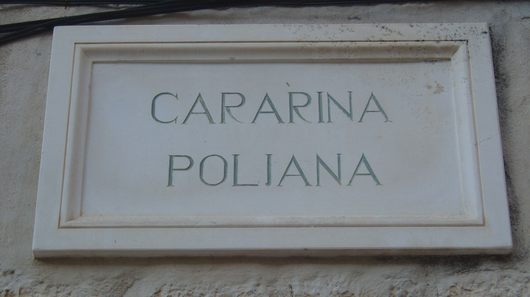 |
Thanks to everyone for the replies. A Dutch origin in Norwich is looking very convincing, and the French word is irrelevant. It's strange that in PN Nf 1, in examples such as St Andrew's Plain, no comment is made on the word. And on pp.93-4, referring to Snailgate 1492, it is said that Snackegate t. Eliz 1 is a corruption. Why is this not just the substitution of a synonymous Dutch word *snake (akin to German Schnecke, rather than modern Dutch slak)?
Keith
PS: a cognate word is used in Croatian for a town square, as in this example from Split.

OED plain, n.1 2b is "English regional (chiefly East Anglian). A flat or open space in a town. Chiefly in place names".
In fact all the examples given are in Norwich except for one in Oxford. Ipswich has a St Margaret's Plain.
Are there instances as names in other towns?
Where does this particular usage come from? Perhaps Dutch, since OED says "with sense 2b compare Dutch plein open space outside a building, town square (16th cent. in this sense; in Middle Dutch in more general senses; < French)?
Keith
To unsubscribe from the EPNL list, click the following link:
https://www.jiscmail.ac.uk/cgi-bin/webadmin?SUBED1=EPNL&A=1
To unsubscribe from the EPNL list, click the following link:
https://www.jiscmail.ac.uk/cgi-bin/webadmin?SUBED1=EPNL&A=
To unsubscribe from the EPNL list, click the following link:
https://www.jiscmail.ac.uk/cgi-bin/webadmin?SUBED1=EPNL&A=1